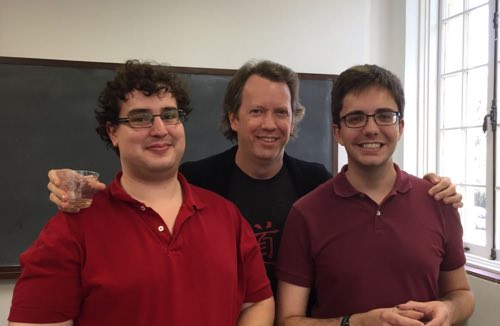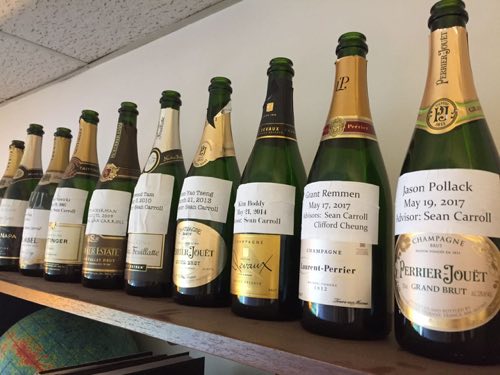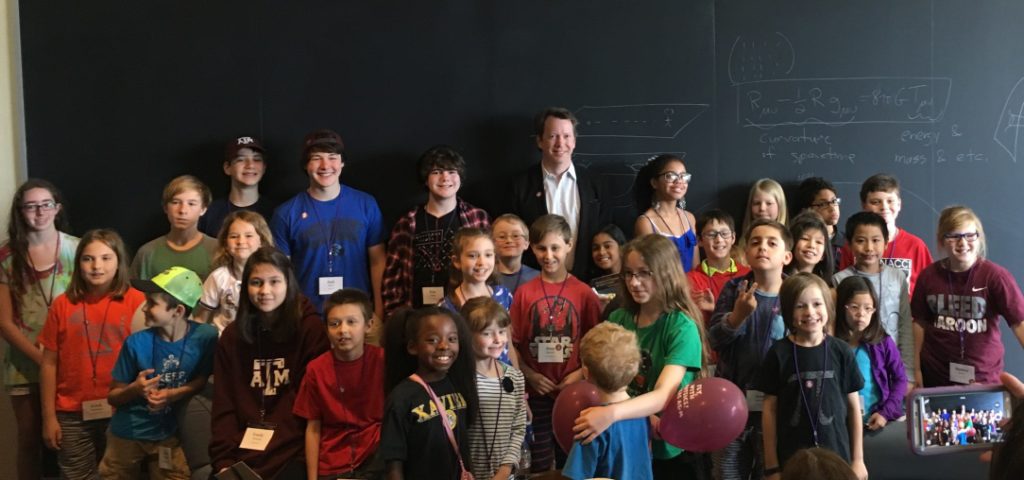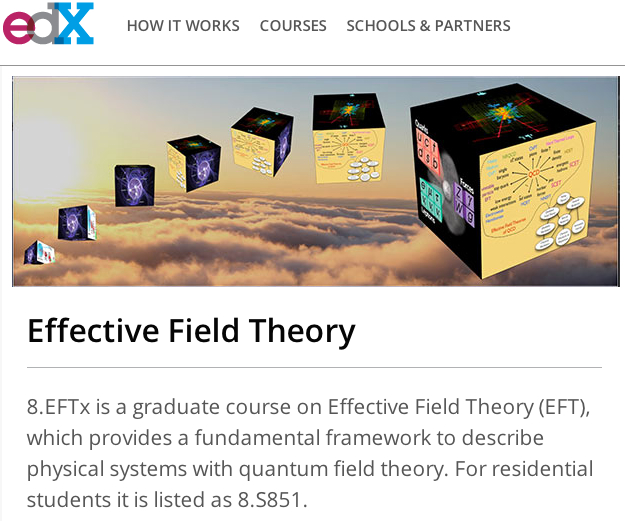One day in grad school, a couple of friends and I were sitting at a table in a hallway in the astronomy building, working on a problem set. The professor who had assigned the problems walked by and noticed what we were doing — which was fine, working together was encouraged. But then he commented, “Hey, I’m confused — you’re all smart guys, so how come the girls have been scoring better than you on the problem sets?” Out loud we mumbled something noncommittal, but I remember thinking, “Maybe they are … also smart?”
This professor was a good-hearted guy, who would have been appalled and defensive at the suggestion that his wry remark perhaps reflected a degree of unconscious bias. Multiply this example by a million, and you get an idea of what it’s like to be a woman trying to succeed in science in a modern university. Not necessarily blatant abuse or discrimination, of the sort faced by Marie Curie or Emmy Noether, but a constant stream of reminders that many of your colleagues think you might not be good enough, that what counts as “confident” for someone else qualifies as “aggressive” or “bitchy” when it comes from you, that your successes are unexpected surprises rather than natural consequences of your talent.
But even today, as we’ve recently been reminded, the obstacles faced by women scientists can still be of the old-fashioned, blatant, every-sensible-person-agrees-it’s-terrible variety. A few months ago we learned that Geoff Marcy, the respected exoplanet researcher at Berkeley, had a long history of sexually harassing students. Yesterday a couple of other cases came to light. U.S. Representative Jackie Speier gave a speech before Congress highlighting the case of Timothy Slater, another astronomer (formerly at the University of Arizona, now at the University of Wyoming) with a track record of harassment. And my own institution, Caltech, has suspended Christian Ott, a professor of theoretical astrophysics, for at least a year, after an investigation concluded that he had harassed students. A full discussion can be found in this article by Azeen Ghorayshi at BuzzFeed, and there are also stories at Science, Nature, and Gizmodo. Caltech president Thomas Rosenbaum and provost Edward Stolper published a memo that (without mentioning names) talked about Caltech’s response to the findings. Enormous credit goes to the students involved, Io Kleiser and Sarah Gossan, who showed great courage and determination in coming forward. (I’m sure they would both much rather be doing science, as would we all.)
No doubt the specifics of these situations will be debated to death. There is a wider context, however. These incidents aren’t isolated; they’re just the ones that happened to come to light recently. And there are issues here that aren’t just about men and women; they’re about what kind of culture we have in academia generally, science in particular, and physics/astronomy especially. Not only did these things happen, but they happened over an extended period of time. They were allowed to happen. Part of that is simply because shit happens; but part is that we don’t place enough value, as working academic scientists, professors, and students, in caring about each other as human beings.
Academic science — and physics is arguably the worst, though perhaps parts of engineering and computer science are just as bad — engenders a macho, cutthroat, sink-or-swim culture. We valorize scoring well on tests, talking loudly, being cocky and fast, tearing others down, “technical” proficiency, overwork, speaking in jargon, focusing on research to the exclusion of all else. In that kind of environment, when someone who is supposed to be a mentor is actually terrorizing their students and postdocs, there is nowhere for the victims to turn, and heavy penalties when they do. “You think your advisor is asking inappropriate things of you? I guess you’re not cut out for this after all.”
In 1998, Jason Altom, a graduate student in chemistry at Harvard, took his own life. Renowned among his contemporaries as both an extraordinarily talented scientist and a meticulous personality, he left behind a pointed note:
“This event could have been avoided,” the note began. “Professors here have too much power over the lives of their grad students.” The letter recommended adoption of a three-member faculty committee to monitor each graduate student’s progress and “provide protection for graduate students from abusive research advisers. If I had such a committee now I know things would be different.” It was the first time, a columnist for The Crimson observed later, that a suicide note took the form of a policy memo.
Academia will always necessarily be, in some sense, competitive: there are more people who want to be researchers and professors than there will ever be jobs for everyone. Not every student will find an eventual research or teaching position. But none of that implies that it has to be a terrifying, tortuous slog — and indeed there are exceptions. My own memories of graduate school are that it was very hard, pulling a substantial number of all-nighters and struggling with difficult material, but that at the same time it was fun. Fulfilling childhood dreams, learning about the universe! That should be the primary feeling everyone has about their education as a scientist, but too often it’s not.
A big problem is that, when problems like this arise, the natural reaction of people in positions of power is to get defensive. We deny that there is bias, or that it’s a problem, or that we haven’t been treating our students like human beings. We worry too much about the reputations of our institutions and our fields, and not enough about the lives of the people for whom we are responsible. I do it myself — nobody likes having their mistakes pointed out to them, and I’m certainly not an exception. It’s a constant struggle to balance legitimate justifications for your own views and actions against a knee-jerk tendency to defend everything you do (or don’t).
Maybe these recent events will be a wake-up call that provokes departments to take real steps to prevent harassment and improve the lives of students more generally. It’s unfortunate that we need to be shown a particularly egregious example of abuse before being stirred to action, but that’s often what it takes. In philosophy, the case of Colin McGinn has prompted a new dialogue about this kind of problem. In astronomy, President of the AAS Meg Urry has been very outspoken about the need to do better. Let’s see if physics will step up, recognize the problems we have, and take concrete steps to do better.



